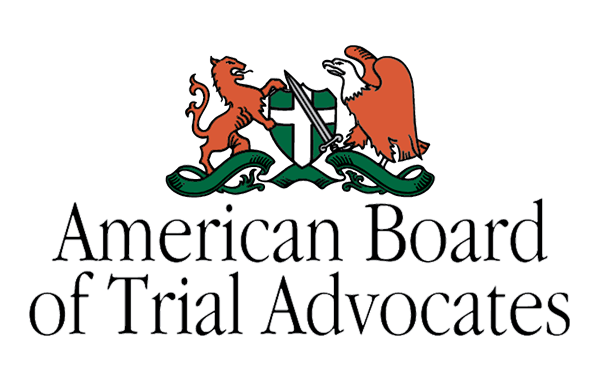In today’s rapidly evolving business landscape, the importance of diversity and inclusion in the workplace cannot be overstated. Companies across Texas are increasingly recognizing the value of creating an environment that embraces differences and promotes inclusivity. Not only does such an approach foster innovation and collaboration, but it also has significant legal implications. Employers must navigate a complex web of federal and state laws to ensure that their diversity and inclusion initiatives comply with legal requirements. Understanding these implications is essential for businesses to avoid legal pitfalls and create a workplace where all employees can thrive.








The Legal Framework for Diversity and Inclusion
At the heart of promoting diversity and inclusion in the Texas workplace is the legal framework that governs employment practices. Employers must adhere to federal laws such as Title VII of the Civil Rights Act of 1964, which prohibits discrimination based on race, color, religion, sex, or national origin. The Americans with Disabilities Act (ADA) and the Age Discrimination in Employment Act (ADEA) further extend protections to individuals with disabilities and older workers. These federal laws set the minimum standards for workplace equality and provide a foundation for employers to build upon.
In addition to federal laws, Texas employers must also consider state-specific legislation. The Texas Labor Code contains provisions that mirror federal anti-discrimination laws, ensuring that employees are protected from unfair treatment. It is crucial for employers to understand the interplay between federal and state laws and to implement policies that comply with both. By doing so, companies can create a culture of inclusion that respects the rights of all employees and fosters a sense of belonging.

Protecting Your Rights
Understanding Discrimination and Harassment
Discrimination and harassment remain significant challenges in achieving true diversity and inclusion in the workplace. Discrimination occurs when an employee is treated unfairly or unequally based on a protected characteristic, such as race, gender, or disability. Harassment, on the other hand, involves unwelcome conduct that creates a hostile or intimidating work environment. Employers must take proactive steps to prevent discrimination and harassment and to promptly address any incidents that may arise.
Creating a comprehensive anti-discrimination and harassment policy is essential for fostering an inclusive workplace. This policy should clearly define prohibited behaviors and outline the procedures for reporting and addressing complaints. Employers should also provide regular training to employees and managers to raise awareness about discrimination and harassment and to promote respectful and inclusive behavior. By taking these proactive measures, companies can create a safe and supportive work environment where diversity is celebrated and all employees feel valued.
The Business Case for Diversity and Inclusion
Promoting diversity and inclusion is not only a legal obligation but also a strategic business imperative. Research consistently shows that diverse teams outperform homogeneous ones in terms of creativity, innovation, and problem-solving. By bringing together individuals with different perspectives, backgrounds, and experiences, companies can tap into a wealth of ideas and insights that drive business success. Moreover, a diverse workforce is better equipped to understand and meet the needs of a diverse customer base, enhancing customer satisfaction and loyalty.
In addition to the business benefits, promoting diversity and inclusion can also enhance a company’s reputation and brand image. Consumers today are increasingly conscious of a company’s values and are more likely to support businesses that prioritize diversity and inclusion. By demonstrating a commitment to equality and fairness, companies can attract top talent, retain employees, and build a positive corporate culture that resonates with employees, customers, and stakeholders alike.
Creating a Diverse and Inclusive Workplace Culture
Building a diverse and inclusive workplace requires more than just policies and procedures. It necessitates a cultural shift that embraces diversity as a core value and promotes inclusivity at all levels of the organization. Employers must foster an environment where all employees feel welcome, respected, and empowered to contribute their unique perspectives and talents.
One effective way to promote diversity and inclusion is through employee resource groups (ERGs). ERGs are voluntary, employee-led groups that provide a platform for individuals with shared identities or experiences to connect, support one another, and advocate for change. These groups can play a vital role in fostering a sense of belonging and providing a voice for underrepresented employees. By supporting and empowering ERGs, employers can demonstrate their commitment to diversity and inclusion and create a more inclusive workplace culture.
Leadership commitment is another critical factor in driving diversity and inclusion initiatives. Leaders set the tone for the organization and play a pivotal role in shaping its culture. By actively championing diversity and inclusion, leaders can inspire employees and create a culture of accountability and transparency. This includes setting diversity goals, measuring progress, and holding leaders and managers accountable for creating an inclusive work environment. By prioritizing diversity and inclusion at the leadership level, companies can create a ripple effect that permeates throughout the organization.
Addressing Implicit Bias and Stereotypes
Implicit bias and stereotypes are unconscious attitudes and beliefs that can influence decision-making and perpetuate inequality in the workplace. These biases can manifest in various ways, such as favoring candidates who share similar backgrounds or making assumptions about an individual’s abilities based on their gender or race. Recognizing and addressing implicit bias is crucial for promoting diversity and inclusion and ensuring fair and equitable treatment for all employees.
Employers can take several steps to mitigate implicit bias and create a more inclusive workplace. One approach is to implement blind recruitment practices, where identifying information such as names and photos are removed from resumes and applications. This helps to eliminate unconscious biases and ensures that candidates are evaluated solely based on their qualifications and skills. Additionally, providing training on unconscious bias can raise awareness and help employees recognize and challenge their biases. By fostering a culture of self-awareness and inclusivity, companies can create a level playing field where all employees have an equal opportunity to succeed.
The Role of Diversity and Inclusion Training
Diversity and inclusion training is a critical component of any comprehensive diversity strategy. This training equips employees with the knowledge and skills to navigate diverse work environments and interact respectfully and inclusively with colleagues and customers. By providing training on topics such as cultural competence, unconscious bias, and inclusive leadership, companies can foster a more inclusive workplace culture and empower employees to be champions of diversity and inclusion.
Effective diversity and inclusion training should go beyond one-time sessions and be an ongoing process that is integrated into the organization’s culture. This can include workshops, seminars, and e-learning modules that are tailored to the specific needs of the organization and its employees. Training should also be interactive and engaging, encouraging participants to reflect on their own biases and behaviors and to develop strategies for creating a more inclusive workplace. By investing in diversity and inclusion training, companies can equip their employees with the tools they need to thrive in a diverse and inclusive environment.
Legal Compliance and Risk Management
While promoting diversity and inclusion is a moral and business imperative, it is also essential for legal compliance and risk management. Employers must ensure that their diversity and inclusion initiatives comply with federal and state laws and do not inadvertently create new legal risks. This includes avoiding practices that could be perceived as reverse discrimination or quota-based hiring, as these could expose companies to legal challenges.
To mitigate legal risks, employers should conduct regular audits of their diversity and inclusion programs and policies to ensure compliance with legal requirements. This includes reviewing recruitment and hiring practices, promotional opportunities, and compensation structures to identify and address any potential disparities. Employers should also establish clear grievance procedures and mechanisms for employees to report discrimination or harassment and ensure that complaints are promptly and thoroughly investigated. By taking these proactive measures, companies can minimize legal risks and create a workplace that is truly inclusive and equitable.
Promoting diversity and inclusion in the Texas workplace is not only a legal obligation but also a strategic imperative for businesses to thrive in today’s competitive market. By creating a culture of inclusivity and respect, companies can harness the full potential of their workforce, drive innovation, and enhance their reputation. However, navigating the legal implications of diversity and inclusion requires a nuanced understanding of federal and state laws and a commitment to ongoing improvement.
Contact Chavez Law Firm Today for Your Business’ Legal Needs
Chavez Law Firm is dedicated to helping businesses in Texas navigate the complex legal landscape of diversity and inclusion. Our experienced team of attorneys is committed to providing comprehensive legal guidance and support to ensure that your diversity initiatives are legally compliant and aligned with your business goals. Whether you need assistance with policy development, training programs, or legal compliance, Chavez Law Firm is here to help. Contact us today to learn how we can partner with you to create a workplace that embraces diversity and fosters inclusion for all.



